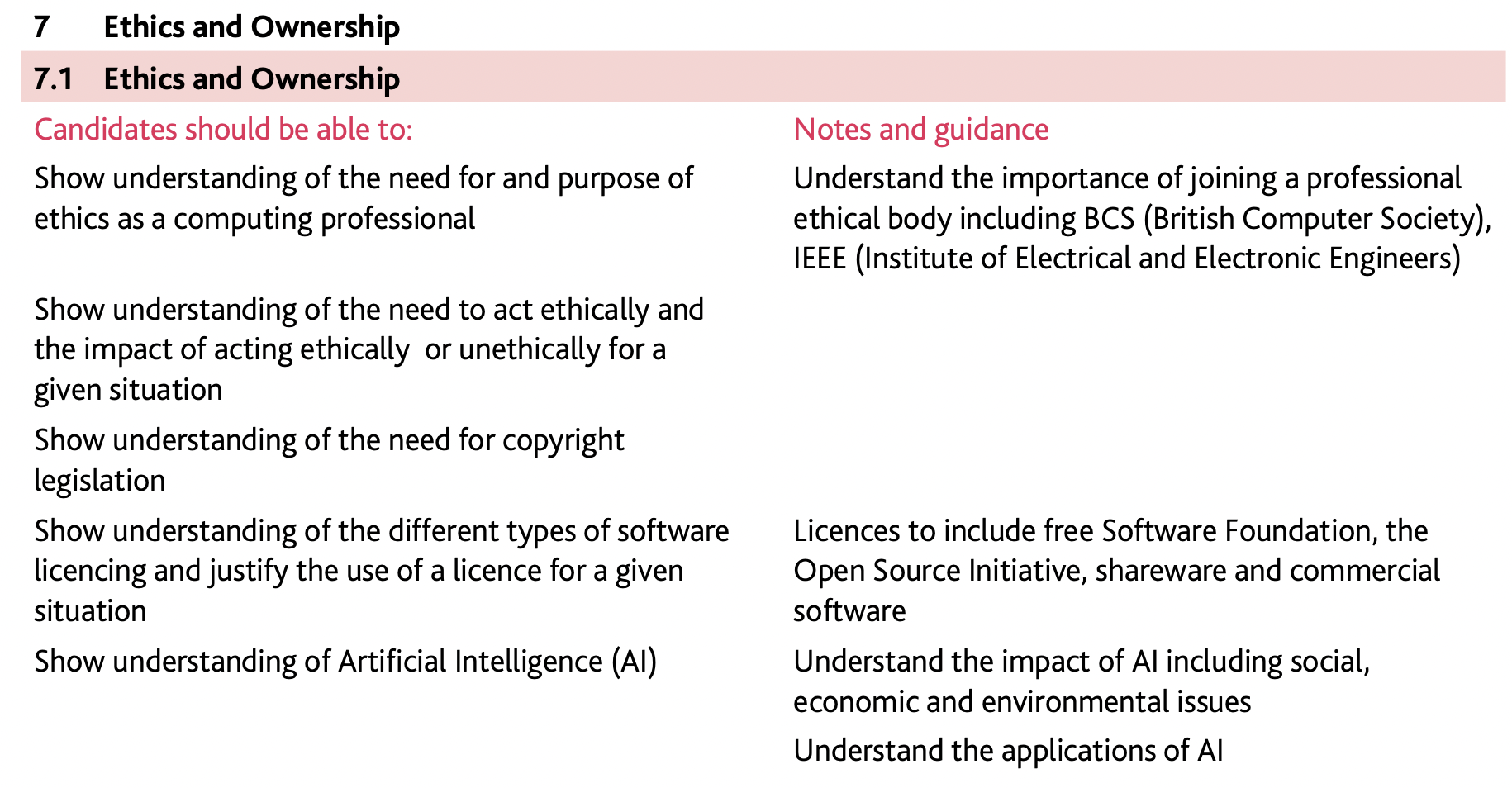Chapter7_EthicsAndOwnership

Ethics and ownership
- Why ethics are important
- Help stop the misuse of computers
- The use of computer needs to be governed
- Help keep users safe when using computers
- Provides rules for using computers
- Help stop intellectual property theft
- Reference to laws
- Reference to security issues
- Importance of joining a professional ethical body
- Has ethical guidelines to follow
- so clients and other staff know the standards being applied
- so he does not have to decide what is ethical it’s written down
- Clients and staff know he is reputable
- Recognition of his skills / knowledge
- There may be a test / requirement for entry
- They provide help and support
- For example if he needs legal service
- They run training courses
- to keep his skills up-to-date
- Has ethical guidelines to follow
- Professional ethical body
- BCS (British Computer Society)
- IEEE (Institute of Electrical and Electronic Engineers)
- Copyright
- Formal and legal rights to ownership
- Protect intellectual property
- Protects against unauthorized reproduction of work
- Provides for legal right of redress
- Free Software Foundation
- Source code comes with the software
- No charge
- If the software is modifies, the edited source code must be released under the same license
- Can still be copyrighted
- Set restrictions on what the user can do
- Open Source Initiative
- Run the software for any legal purpose as they wish
- The source code comes with the software
- Study the program source code and modify it where necessary to meet their needs
- Redistribute copies of the software to friends and family
- Shareware
- The software is free for a trial period (may be limited in feature)
- Do not have access to the source code
- After the trial a fee is requested
- If the user wants to continue to use the software they need to pay
- Commercial software
- The software can be legally used only after a fee has been paid
- Source code not provided
- The software is purchased
- With a license restricts the number of users
- The program code for the software cannot be edited
- Restricted use
- Limited number of installation allowed
- How AI can help
- Machines can learn from past problems/mistakes
- They can adapt to stop the same problem occurring again
- They can learn to predict what might happen and raise an alert
- Machines can learn how to work more efficiently
- When an action slows the system down, it can prevent this happening again
- When an action increases the speed of the system, it can repeat this when necessary to improve the efficiency
- Machines can learn from past problems/mistakes
- Impact of AI
- Job lost
- More efficient production
- More leisure time
- Help us to conserve natural resource
- Detection of pollution
- Renewable energy
- Applications of AI
- Transport: autonomous vehicles delivery drones
- Criminal justice system: facial recognition
- Advertising and use of data: purchasing assistant
- Healthcare: artificial limb technology, medical procedures require extreme precision
- Military: drones used to carry out dangerous tasks, attacking drone, auto-defense system
- Environmental protection: climate change prediction, energy usage regulation